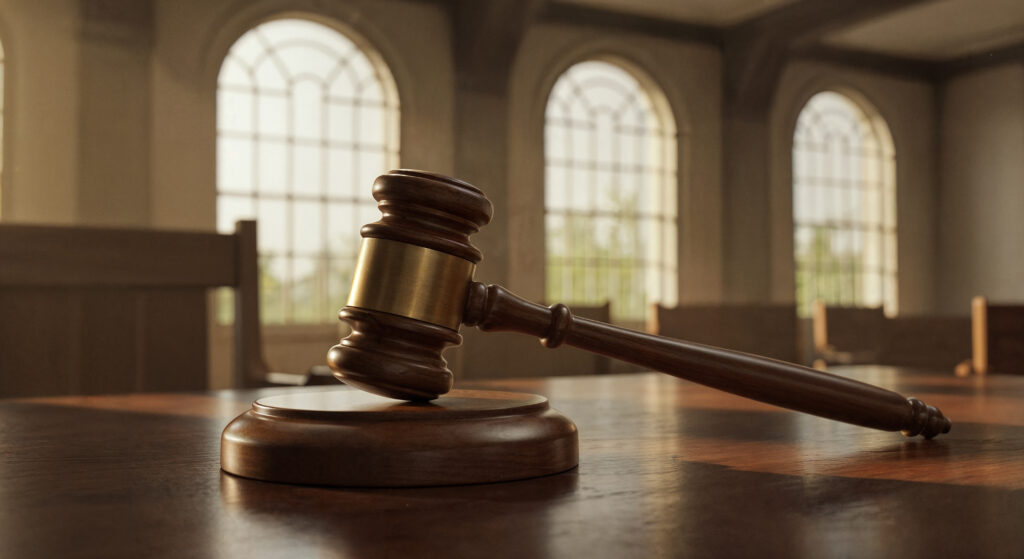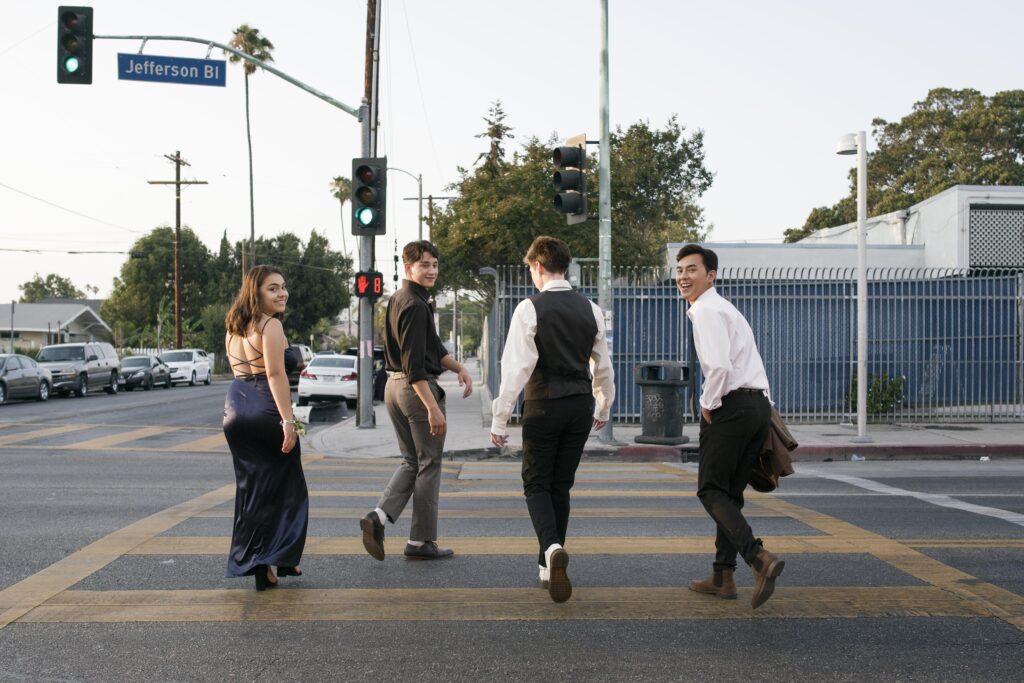Getting charged with a crime is one of the most stressful experiences you can go through. You’ve probably got a thousand questions running through your head about what’s going to happen and what the possible outcomes are.
One word you might hear over and over is “acquitted.” But what does being acquitted mean? How does it affect your future?
Let’s break it down step by step, so you’ll understand what an acquittal is, how it’s different from other outcomes, and what it means for you after the trial ends.
What Does Acquitted Mean?
So, what does acquitted mean? In simple terms, an acquittal happens when a judge or jury finds you not guilty of the crime you were charged with.
When you’re acquitted, it means the prosecution couldn’t prove the charges against you beyond a reasonable doubt. Remember, that’s the standard the state has to meet in every criminal case. If there’s a reasonable doubt about whether you committed the crime, the jury (or judge in a bench trial) must acquit you.
Here’s the key point: being acquitted doesn’t necessarily mean the court proved you’re innocent. It just means the prosecution didn’t prove that you’re guilty. The law puts the burden entirely on the state, not on you.
An acquittal can apply to:
- All charges in your case (a full acquittal)
- Some but not all charges (a partial acquittal, which we’ll cover later)
Once you’re acquitted, you can’t be tried again for the same crime due to protections in the Constitution.

What Is Not Guilty?
Not guilty is the formal verdict the court gives when you’re acquitted. This might be a better way to frame it: “not guilty” is the verdict, while “acquittal” is the outcome.
When the judge or jury says “not guilty,” they’re declaring that the state didn’t meet its burden of proof. That’s why the terms “acquitted” and “not guilty” are often used together. They’re describing the same result.
However, there’s an important distinction to keep in mind. “Not guilty” doesn’t automatically equal “innocent.” Instead, it means the evidence presented wasn’t strong enough to convince the jury that you committed the crime.
Acquitted vs. Not Guilty
Now let’s compare the two. People often ask, is there a difference between being acquitted and being found not guilty?
- Acquittal is the broader term for the legal outcome of your trial.
- Not guilty is the actual verdict that leads to the acquittal.
If you’re found not guilty, you’re acquitted. If you’re acquitted, it’s because you were found not guilty. They go hand in hand.
That said, “acquittal” may also cover situations beyond just the jury’s words. For example, if the judge dismisses a charge because the evidence isn’t strong enough before the case even gets to the jury, that can still be treated as an acquittal.
What Is a Partial Acquittal?
Sometimes, a case involves multiple charges. You might face three, four, or even more counts from a single incident.
A partial acquittal happens when you’re found not guilty of some charges but guilty of others. Here’s an example:
- You’re charged with burglary, assault, and trespassing. The jury finds you not guilty of burglary and assault but guilty of trespassing.
- In that scenario, you’ve been partially acquitted.
Partial acquittals can feel like a mixed bag. On one hand, you’re cleared of the more serious charges. On the other hand, you still face consequences for the ones you weren’t acquitted of.
Still, a partial acquittal is often a major victory. It means the state couldn’t prove everything it set out to prove, and you avoid the worst penalties that might have come with a full conviction.
Double Jeopardy Clause
One of the biggest protections you have under the Constitution is the Double Jeopardy Clause in the Fifth Amendment. “It says you can’t be tried twice for the same offense once you’ve been acquitted.”
Here’s what that means:
- If you’re acquitted, the prosecution can’t just bring the same charges again, hoping for a different jury.
- Once a “not guilty” verdict is entered, the case is over, end of story.
There are some exceptions. One of them is if you’re charged in both state and federal court for the same conduct, since those are considered different sovereigns. But for the most part, acquittal is final.
That’s why an acquittal is so important. It’s a permanent shield against being prosecuted again for that same crime.
Is Acquittal the Same as Dismissal?
No, acquittal and dismissal aren’t the same thing. They might both result in the charges going away, but they happen in different ways.
- Acquittal: This happens after a trial, when a judge or jury finds you not guilty.
- Dismissal: This happens before or during trial, when the judge decides the case can’t move forward for some reason.
For example, a case might be dismissed because of insufficient evidence, procedural errors, or violations of your constitutional rights. A dismissal might also be “with prejudice” (meaning it can’t be refiled) or “without prejudice” (meaning the prosecution can try again).
The difference matters. An acquittal is a stronger protection because of double jeopardy. It permanently ends the case. A dismissal might not always do that.
What to Do After Being Acquitted?
If you’re acquitted, congratulations. You’re free from criminal liability for that charge, but you may still face some next steps.
Here’s what you should do after an acquittal:
1. Confirm the Case Is Closed
Make sure the court record clearly reflects the not guilty verdict and that no appeals or new charges are pending.
2. Ask About Expungement or Record Sealing
Even if you were acquitted, the arrest and charges may still show up on your criminal record. You can often petition to have your record sealed so it doesn’t affect your job prospects, housing, or background checks.
3. Consider Civil Consequences
In some cases, even after an acquittal, you might face civil lawsuits. For example, being acquitted of assault doesn’t necessarily stop the alleged victim from suing you for damages in civil court.
4. Rebuild Your Life
Being charged can take a toll on your career and relationships. An acquittal gives you the chance to move forward, but you may still want support from family or professionals to fully recover.
How Can a Defense Attorney Help You?
Whether you’re hoping to get acquitted or you’ve already been acquitted and need to clean up the aftermath, a defense lawyer plays a huge role. Here’s how:
- During Trial: Your lawyer challenges the prosecution’s evidence and cross-examines witnesses. The goal is to create reasonable doubt so the jury sees why you shouldn’t be convicted.
- Before Trial: Sometimes a strong defense strategy can lead to dismissal or reduced charges before the trial even begins.
- After Acquittal: Your lawyer can help you seal your record and make sure the acquittal truly closes the door on the case.
- Explaining Your Rights: The legal system is complicated. Having someone in your corner who understands the difference between acquittal, dismissal, not guilty, and conviction makes sure you don’t miss opportunities to protect yourself.
If you’re facing criminal charges, your goal is simple: avoid a conviction. An acquittal is the best possible outcome you can get in court. And the best way to reach that outcome is by working with an experienced criminal defense attorney who knows how to build a strong case on your behalf.
What You Need to Do Next
So, what does being acquitted mean? It means the prosecution didn’t prove its case, and you’re not guilty of the charges against you. It doesn’t mean the court proved your innocence, but it does mean you’re free from criminal liability for those charges.
Whether it’s a full acquittal or a partial one, the outcome gives you important protections under the Double Jeopardy Clause. You can’t be tried again for the same offense. And while an acquittal isn’t the same as a dismissal, it’s one of the strongest outcomes you can hope for in court.
If you’ve been charged with a crime in California, don’t leave your future up to chance. Contact the Law Office of David L. Faulkner right away. The sooner you get help, the stronger your chances are of walking out of court with an acquittal.









